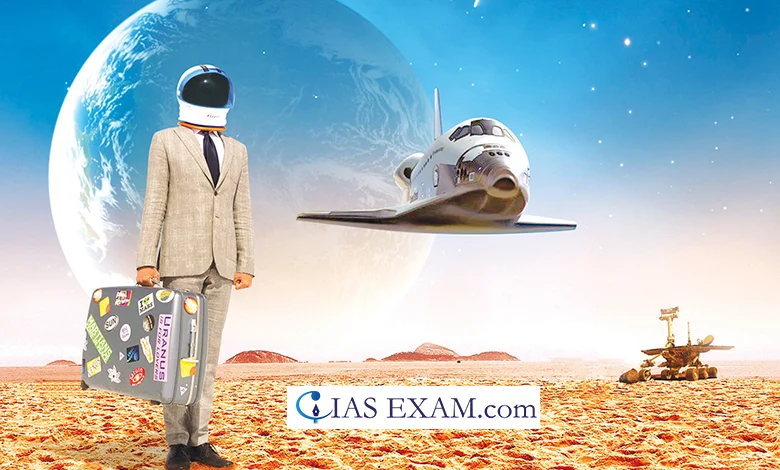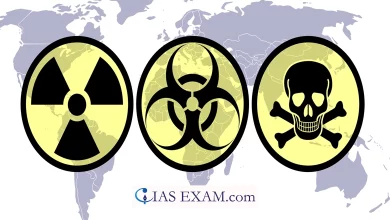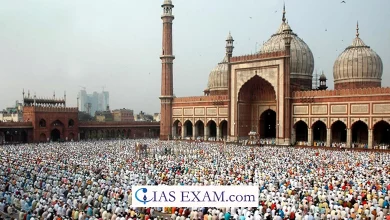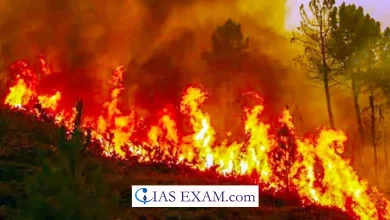
Context
Gopi Thotakura, an Indian entrepreneur and aviator, will be the first Indian space tourist and will join five other crew members on the NS-25 mission of Blue Origin.
About
- Space tourism is basically a segment of the aviation region which seeks to offer tourists the opportunity to end up astronauts and enjoy space tours for recreational, leisure, or business purposes.
- If the mission is a hit, Thotakura would be the 2nd Indian to go into space.
- The first one changed into Wing Commander Rakesh Sharma, who flew to the Salyut 7 Space Station on a Soviet spacecraft in 1984.
Types
- Sub Orbital: Sub-orbital spacecraft take passengers simply past the Kármán line — almost 100 kilometres from earth and taken into consideration to be the boundary between Earth’s ecosystem and outer area.
- The passengers get to spend a few minutes in outer space after which they return to Earth.
- Orbital: Orbital tourism, alternatively, entails remaining in space for at least one full orbit.
- This is a leading recognition of governmental agencies and private space companies, all of which have the long-term goal to inhabit the moon and Mars.
Growth of Space Tourism
- According to media reports, in 2023, the distance tourism market became worth $848.28 million.
- It is expected to develop to $27,861.99 million by 2032.
- However, there are several demanding situations, including excessive value, and environmental issues, which could restrict the industry’s growth.
Major Players in Space Tourism
- There are actually six major area groups which are arranging or planning to set up touristic flights to the area: Virgin Galactic, Blue Origin, SpaceX, Boeing, Axiom Space, and Space Perspective.
- While the first two (Virgin Galactic, Blue Origin) are centered on suborbital flights, Axiom and Boeing are running on orbital missions.
- SpaceX, in its turn, is prioritising lunar tourism in the future.
Challenges Associated with Space Tourism
- High Costs: Currently, space tourism is an expensive venture, accessible only to the wealthier sections of society.
- A passenger generally has to pay at least 1,000,000 dollars to reach outer space.
- This excessive fee ends in social inequity and elitism, as it limits access to a privileged few.
- Safety Concerns: The weakening of bones and muscular tissues because of loss of gravity (atrophy), capacity damage to spacecraft from intense temperatures and collisions with space debris, and health issues from extended space travel and radiation publicity are all risks associated with space tourism.
- Environmental Impact: Several studies have mentioned that area tourism may cause environmental harm as rockets emit gaseous and solid chemical substances immediately into the higher ecosystem.
- Scientists fear that growing numbers of rocket flights and the upward push of space tourism could harm Earth’s environment and make a contribution to climate trade.
- Legal and Regulatory Challenges: The regulatory framework for space activities is complex, with numerous global treaties and agreements governing space sports and countrywide laws and policies between nations.
- There is an urgent need to draft new treaties to modify the gap tourism enterprise.
- Infrastructure Limitations: Limited infrastructure for area tour and tourism is some other task that needs to be addressed.
- As major companies put money into developing spacecraft and launch infrastructure, there will be an increased demand for engineers, technicians, pilots, and different specialized experts.
Conclusion
- Space tourism represents a new frontier in human exploration. It not handiest gives the promise of space travel to ordinary people however additionally has the capacity to pressure technological innovation and inspire a new generation of explorers.
- The high cost of space travel and the environmental impact are big hurdles that need to be addressed.
- Moreover, the physical and psychological results of space travel on human beings are nevertheless not fully understood.
- As we stand on the cusp of this new technology, it is clean that space tourism will play a tremendous function in shaping the future of human space exploration.
Source: The Indian Express
UPSC Mains Practice Question
Q.What is space tourism? Discuss its origin and explain what can the space tourist look forward to and the benefits of future of flying tourists into space.(250 words)





.png)



